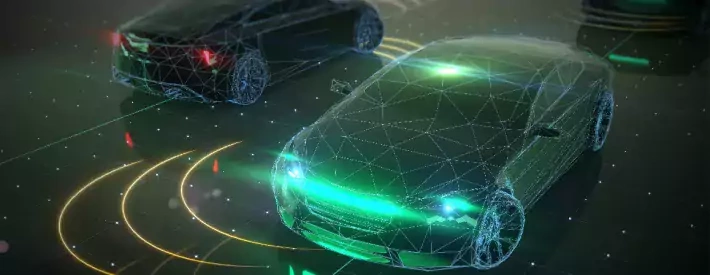Why the IMI is getting onboard with self-driving technology

Automotive is going through some huge shifts. As well as electrification increased embedded Advanced Driver Assistance Systems are giving vehicles greater driving autonomy. Upskilling will be key to making sure the workforce is ready to keep these vehicles on the road
In a recent MotorPro podcast, AA President Edmund King predicted that connected and self-driving vehicles will lead to “radical changes” in the UK automotive industry. He’s quite right of course and the IMI and its members need to be gearing up for.
“We’re already on the road to full autonomy, starting with the lower levels of automation. For instance, our e-learning skills solution and campaigns around Advanced Driver Assistance Systems (ADAS),” says Steve Scofield, Head of Business Development at the IMI.
“That’s currently the biggest issue for the real-world car parc, whether for accident repair or maintenance and repair. Very soon we’ll be launching new ADAS qualifications, and that's just the start of our journey.
“From a skills perspective, the IMI is downstream of the research and testing being conducted by groups like the Department for Transport’s Centre for Connected and Autonomous Vehicles (CCAV). But we’re continually horizon-scanning and engaging with key stakeholders – that’s all part of being future-proof.
“We have strong partnerships with organisations like Thatcham and BSI to make sure we can see what's coming, to build-in industry requirements, to drive continuing professional development (CPD), and to ensure there’s recognition of accredited training,” says Scofield.
A good example is IMI TechSafe, which identifies a member’s professionalism and safe working in the field of electric vehicles (EVs) and other safety-critical systems, including autonomous and driver assistance systems.
The repair of ADAS-equipped vehicles is covered by British Standard BS10125, formerly known as PAS 125, and most insurance companies will only give work to businesses that meet the standard.
Changing standards
As an indicator of how the UK will embrace the higher levels of automation – vehicles that can get from A to B with minimal human interaction – it’s interesting to note the work of BSI’s connected and automated vehicles (CAV) standards programme, sponsored by the CCAV in conjunction with Innovate UK and Zenzic.
PAS stands for Publicly Available Specification, and BSI is working on three new versions: PAS 1880 on guidelines for developing and assessing control systems for automated vehicles, PAS 1881 on assuring safety for autonomous vehicle trials and testing, and PAS 1882 on data collection and management for automated vehicle trials for the purpose of incident investigation. According to BSI, around 30% of PAS go on to form the basis of international standards.
Scofield says: “Our IMI industry Sector Advisory Group, which includes around 75 organisations, will be looking closely at autonomous. It's really important for us to sow the seeds early, to embed qualifications around autonomous into our training centres so our membership is ready for the changing environment.
“Bear in mind that the Law Commission is only just putting together the regulatory framework for self-driving in the UK. We’re not far down the road with autonomous yet, we’re mainly talking level one and two driver assistance, but you can see the world is shifting towards ACES – Autonomous, Connected, Electric and Shared.
“It’s exciting for talent acquisition because it should help us to attract the next generation. Young people are very interested in low carbon and the green agenda. They also like the idea of working in a dynamic, rapidly evolving sector.
“Just this week, [IMI chief executive] Steve Nash and I were at a John Deere training academy seeing how they use GPS to position their vehicles within a centimetre or two. For road vehicles there’s the whole connectivity side, how these vehicles will talk to the infrastructure, the vehicle manufacturer, the vehicle owner and other vehicles.
“I don't have all of the answers at this stage, I can just see bits of it as we're researching. What’s very clear is that the motor industry will need a lot more talent in software, as well as the usual vehicle systems.”
In terms of bottom line benefits, IMI analysis of salary data for 2020 showed an earning premium of more than 10% for EV qualified technicians. That’s about £3,700 per annum extra in your pay packet for specialising in cutting-edge tech, so staying ahead – or at least maintaining pace with – technological changes is definitely worthwhile.




